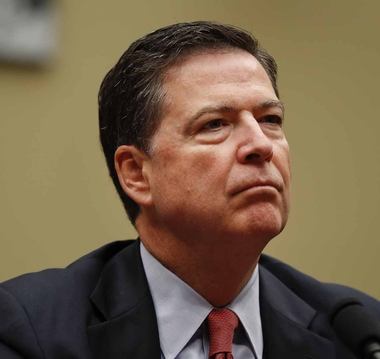Why it matters: Homegrown extremism

Washington (AP) — The issue: Radical Islamic militancy that has sustained itself for decades overseas has inspired a series of attacks on U.S. soil in the last year and a half.
The culprits typically have no ties to foreign terrorist organizations, no explicit directions from overseas and no formal training — unlike the operatives of 9/11. Instead, they've blended into American society and skated beneath the radar of federal investigators grappling with a frenetic threat landscape and hundreds of investigations across the country.
The bombing in Manhattan in September that injured more than two-dozen people crystallized the concerns: A handwritten journal found with Ahmad Khan Rahami, the Afghan-born U.S. citizen accused in the explosion, praised terrorists like Osama bin Laden and warned the sounds of bombs would be heard in the streets, prosecutors allege.
Before that was the Pulse nightclub massacre in Orlando, the deadliest mass shooting in modern U.S. history, with 49 killed. In December 2015, a husband-wife duo killed 14 people in San Bernardino, California. A July 2015 shooting at military sites in Chattanooga, Tennessee, killed four Marines and one Navy sailor.
Death counts mount. While more people die in traffic accidents, the fear of seemingly random attacks has shaken the American psyche.
Some Americans have turned inward. They think twice about attending large events. They view others suspiciously on public transit.
How can the U.S. defend itself from these jihadi-inspired homegrown attacks?
___
Where they stand
Hillary Clinton says Muslim-Americans may be the best defense against extremism in their communities. She says they can prevent young people from joining jihadis and notify law enforcement when they hear of planned attacks or suspected radicalization. Clinton would prohibit people on terrorist watch lists from being able to purchase weapons. She also wants wider use of programs to identify signs of radicalization and counter jihadi ideology, though the success of such initiatives isn't established.
Donald Trump had proposed a freeze on foreign Muslims entering the U.S., though that would have done little to stop radicalized American citizens. Now, instead, he's proposed a hold on immigration from areas of the world with a history of extremist violence against the U.S. and allies.
___
Why it matters
The threat is real.
The FBI has said counterterrorism agents have open investigations across the country. Director James Comey said in May there are "north of 1,000" cases in which agents are trying to evaluate a subject's level of radicalization and potential for violence. Since late 2013, more than 110 people in about 35 judicial districts have been charged with attempting to join militants in the Middle East or with otherwise supporting the Islamic State group, according to John Carlin, head of the Justice Department's National Security Division.
The number of Americans seeking to travel to Syria to fight alongside IS has slowed to a near trickle, through that's not necessarily comforting. The Islamic State has been using social media to exhort supporters already in the U.S. to commit violence locally with guns, bombs or any easily accessible arms.
Tracking would-be jihadis is especially challenging. Even as investigators express confidence in their ability to detect and thwart a spectacular 9/11-style plot, there's simply no way to identify the untold number of Americans inspired by IS.
Its supporters need not receive training or vetting to be adopted by IS. A simple public pledge of support, as attackers in San Bernardino and Orlando did, is often sufficient.
Law enforcement has a difficult job tracking would-be militants and stopping them before they attack. But it also is tasked with taking down the network of people promoting radical Islam who quietly inspire others to violence.
The debate over how to respond is framed by those calling for more investigative powers for law enforcement and the intelligence community, on the one hand, and those trying to protect citizens' right to privacy.
By Deb Riechmann and Eric Tucker, Associated Press. Copyright 2016 The Associated Press. All rights reserved. This material may not be published, broadcast, rewritten or redistributed.
The Gayly – October 10, 2016 @ 11:20 a.m.





